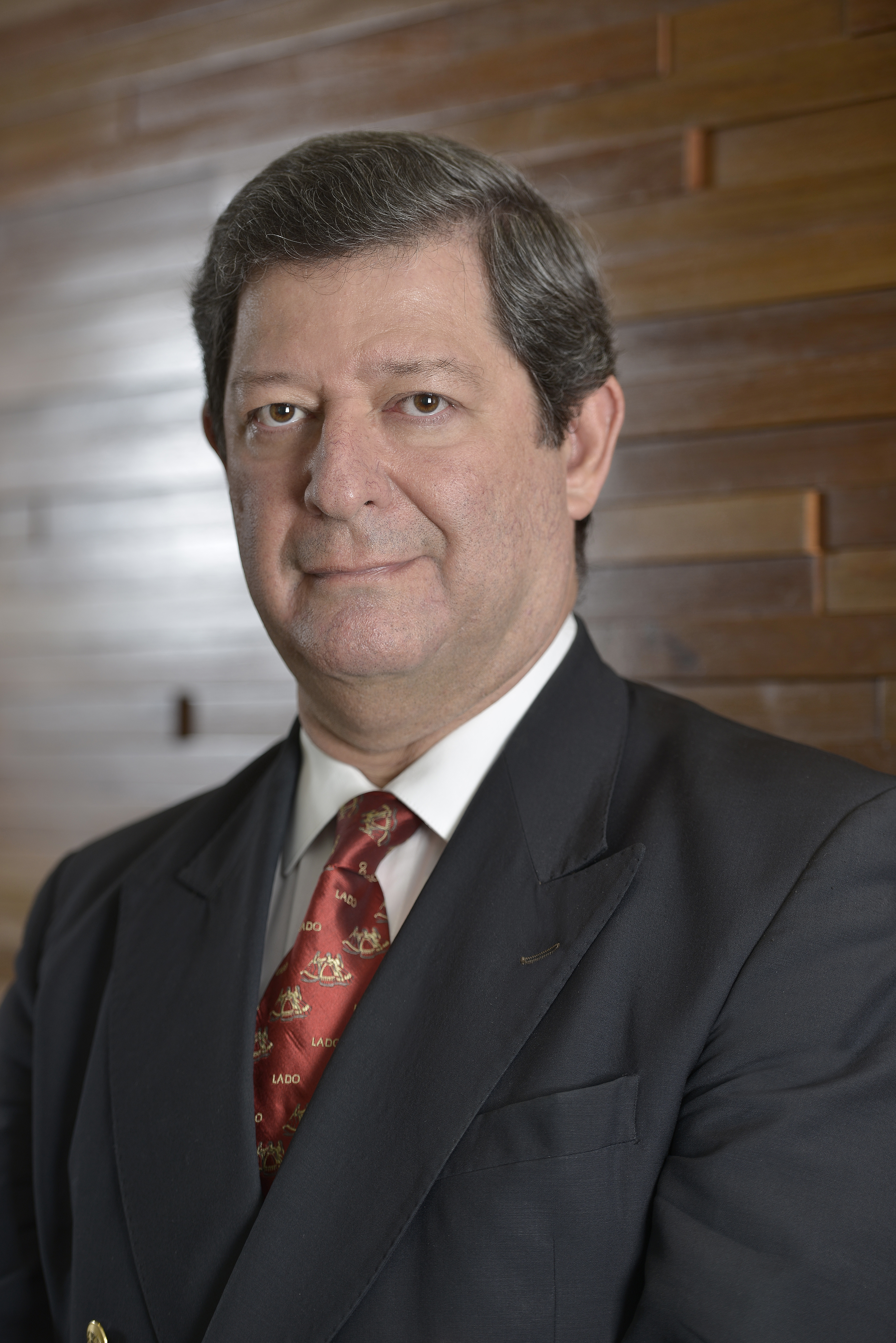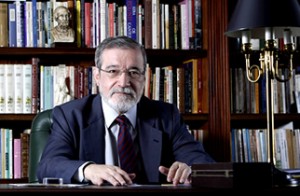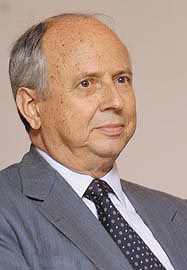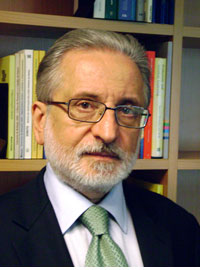Founded in 2003, the Brazilian Institute of Ethics in Competition (ETCO) is a civil society organization of public interest - OSCIP that promotes integrity in the business environment. We believe that fair competition is one of the main foundations of economic development and the construction of a stronger and more just nation. Our mission is to identify, discuss, propose and support initiatives to strengthen ethics and reduce illicit practices that cause market imbalances such as tax evasion, informality, counterfeiting, smuggling and other misconduct.
ETCO is maintained by companies and associations committed to the cause of fair competition.
The ETCO comprises four sectorial chambers, bringing together companies in the fuel, tobacco, beer and soft drink segments.
MISSION
"Fighting unfair competition in order to promote the improvement of the business environment".
Board of Directors

Edson Vismona Chief Executive
Vismona is a lawyer, graduated and post-graduated from the Faculty of Law of the University of São Paulo, specializing in commercial defense and consumer law. He was Secretary of Justice and Defense of Citizenship of the State of São Paulo .; National Secretary for Agrarian Reform (2002) Founder and President of the Brazilian Association of Ombudsmen / Ombudsman - ABO, he is a member of the National Council for Combating Piracy (CNCP), of the Piracy Combat Commission of the OAB / SP - Brazilian Bar Association, São Paulo section and of the Council of Ethics of the Instituto Ética-Saúde. He is president of FNCP (National Forum Against Piracy and Illegality, since 2009.
Staff
Andrea Lopes Executive Manager
Kelly Brook Adm and Financial Manager
Cristiane Carletti
Administrative assistant
Administrative Council
Alexandre Kruel Jobim
Chairman of the Board of Directors
Lawyer, Master of Law from the University of Texas (USA), Bachelor of Law from UniCEUB. He is a Licensed professor at UniCEUB, a substitute professor at UnB and IDP.
He was Legal Consultant at ABERT, ANJ, FENAERT, chaired AIR and Vice President Legal and Institutional Relations at Grupo RBS.
He is currently president of ABIR- Brazilian Association of the Soft Drink and Non-Alcoholic Beverages Industry.
Headlines
- Leonardo Botelho Zilio
- Ricardo Melo
- Rinaldo Zangirolami
alternates
- Delicious Sandi
- Disraelli Galvao
- Leandro de Barros
- Silmara Olivio
consulting board

Everardo Maciel
Chairman of the Advisory Board
He is a legal consultant and professor at the Brasiliense Institute of Public Law. He was Secretary of Finance, Planning and Education of Pernambuco, Secretary of Finance and Planning of the Federal District, Executive Secretary of the Ministries of Education, of the Civil House, of the Interior (today National Integration) and of Finance, Secretary of the Federal Revenue, in addition to having held the positions of Minister of Education, Interior and Finance on an interim basis. He also taught at private academic institutions and participated in missions of United Nations organizations.
- André Franco Montoro Filho
- Aristides Junqueira Alvarenga
- Carlos Ivan Simonsen Leal
- Celso lafer
- Ellen Gracie Northfleet
- Evandro Guimaraes
- Gesner Oliveira
- Hamilton Dias de Souza
- Hoche Pulcherio
- João Grandino Rodas
- Joao Roberto Marinho
- Jorge Luiz Oliveira
- Jorge Raimundo Filho
- Leonardo Gadotti Filho
- Luiz Fernando Furlan
- Maria Teresa Aina Sadek
- Marco Greco
- Nelson Jobim
- Robert Abdenur
- Roberto Faldini
- Tercio Sampaio Ferraz Júnior
- Theo van der Loo
- Victoria de Marchi
Conselho Fiscal
Daniela Rodrigues Lopes (President)
Headlines
- Dilmar Moreira Madureira
- Luciano France Sousa
- Monica Saraiva
alternates
- Mozart Santos Rodrigues Filho
- Uira Tonon Gomes
- Jesus Meijomil
- Luiza Weguelin de Melo



 The ETCO Board of Directors, in the person of its president Hoche Pulcherio, swore in today, May 2, to the new executive president of the Institute, Roberto Abdenur. He replaces André Franco Montoro Filho, who, after more than 4 years as chief executive, became part of the ETCO Advisory Board.
The ETCO Board of Directors, in the person of its president Hoche Pulcherio, swore in today, May 2, to the new executive president of the Institute, Roberto Abdenur. He replaces André Franco Montoro Filho, who, after more than 4 years as chief executive, became part of the ETCO Advisory Board.
